Everyone loves waffles. You can top them with syrup and butter, fruit and whipped topping, or even savory ingredients. They come in thick, thin, round, or square varieties. All are delicious.
But have you ever wondered what makes a Belgian waffle so unique? What’s the difference between a Belgian waffle and a regular waffle? Read our article on the Belgian waffle vs waffle to find out more.
See also: The Best Belgian Waffle Makers
Difference in Appearance
Belgian waffles have deep pockets, whereas regular waffles have smaller pockets. Many people prefer Belgian waffles because the larger pockets allow the waffle to hold many more toppings. You can fit a lot more syrup, fruit, whipped toppings, and more on a Belgian waffle.
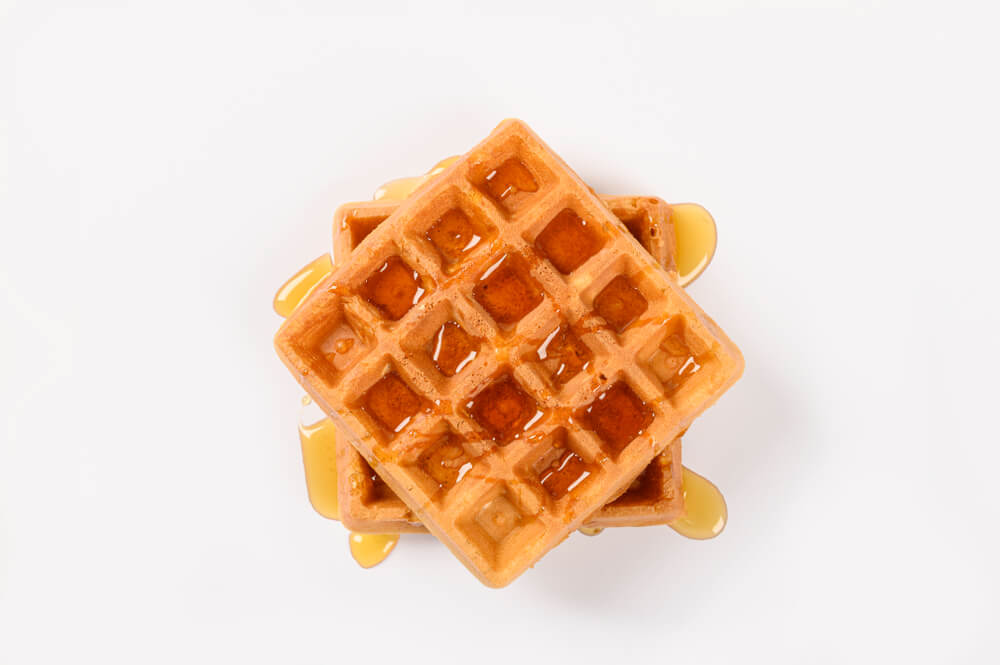
Difference in Recipes
The question of waffle vs Belgian waffle is also about the recipe. If you’ve had a chance to try both types of waffle, you’ve likely noticed a difference in taste. That’s because the two waffles contain different ingredients.
A regular waffle is heavier and thicker. It has a texture similar to cake. Traditional waffles are often made with buttermilk, which gives them a richer flavor.
The Difference in Waffle Makers and Size
You can typically make any type of waffle in any waffle iron, but you will need a special waffle maker if you want to make an authentic Belgian waffle. A Belgian waffle maker will have a bigger grid so that you can get the iconic deep pockets. These waffle makers are often round and require you to pour in the batter, close the lid, and then flip the waffle maker so that it can cook.
History of the Waffle
In the story of Belgian waffle vs waffle, the two foods even have different backgrounds. The ancient Greeks invented the waffle. Archaeologists have discovered what appears to be ancient waffle irons in Greek ruins. These irons look like two plates with handles that were used to grill cakes.
The Greek waffle was quite different from the breakfast dish we know and love today. The Greeks called their waffles obelios, and they were more savory than sweet. The obelio became the oublie during Medieval Europe. The recipe evolved as well, as people began to add spices and honey to give it more flavor and yeast to make it thicker. It eventually took on the name wafel.
The Dutch made the wafel into the waffle we know today. They invented the grid shape in the iron to give the waffle its iconic pattern. Although it’s suspected they were trying to make a larger waffle with less batter, no one is sure why. The Dutch brought the waffle to America, where it gained even more popularity.
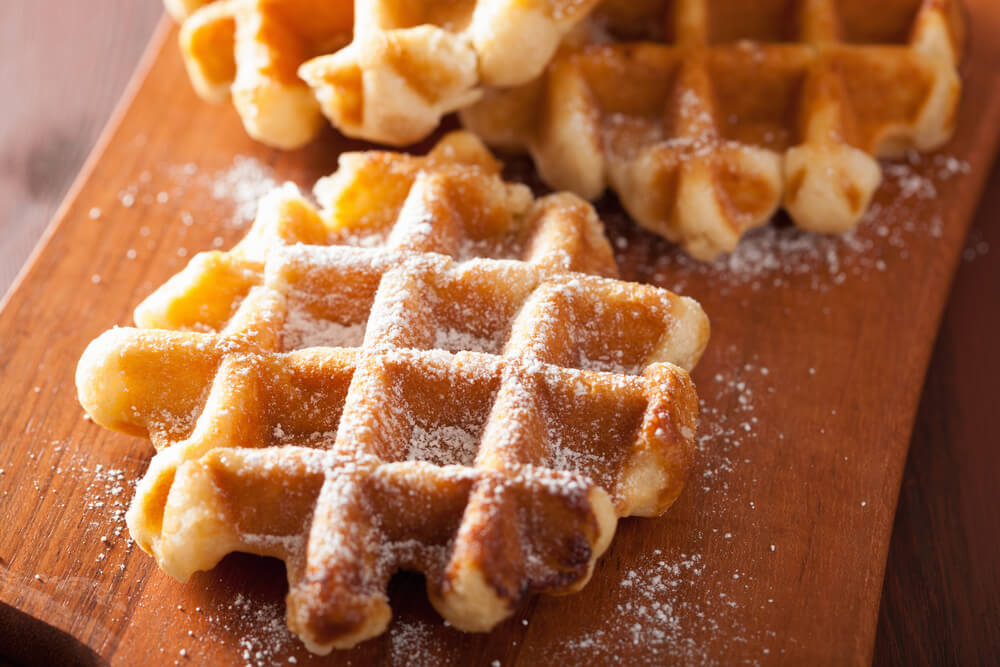
History of the Belgian Waffle
While most people will correctly guess that the Belgian waffle comes from Belgium, the Belgian waffle most Americans eat is a far cry from the waffle eaten in Belgium. America got its first taste of the Belgian waffle (then called the Brussels waffle) at the 1962 World’s Fair. It didn’t make much of an impression.
It wasn’t until the 1964-65 World’s Fair that the waffle became a phenomenon. Maurice Vermersch sold the waffle in two different options – plain and with strawberries and whipped cream. The treat was a hit, and the family decided to rename it a Belgian waffle instead of a Brussels waffle.
The waffle is eaten differently in Belgium. It isn’t served with syrup, and it’s more of a street food than breakfast fare like we see in the US. It’s also eaten with the hands – not a fork and knife.
Common Ways to Eat a Belgian Waffle
There are many ways to eat a Belgian waffle. Two of the most common methods are with syrup and butter or with fruit and whipped cream. Belgians limit their waffles to a little butter and powdered sugar.
Some people eat Belgian waffles for dessert, topping them with ice cream, chocolate syrup, caramel sauce, whipped cream, and sprinkles. Others may slather them with icing.
Common Ways to Eat a Regular Waffle
As with the Belgian waffle, the most common toppings for a regular waffle are syrup and butter or fruit and whipped cream. But the fun doesn’t have to stop there. You can try other sweet toppings like Nutella or peanut butter.
Others may use a waffle as a vehicle for their eggs, bacon, cheese, ham, or sausage. They can also be used to make a savory breakfast sandwich.
There’s also the more recent craze of chicken and waffles. This dish tops a waffle with fried chicken tenders and syrup. Waffles for dinner are growing in popularity. There are now many savory dishes that feature waffles.
Final Thoughts
While both Belgian waffles and standard waffles are both considered waffles, there are actually quite a few differences. The waffles have different recipes, different methods of cooking, and even different histories.
When it comes to Belgian waffle vs waffle, the two might be different, but they also have one crucial thing in common: they’re both delicious.
Waffle Maker Reviews:


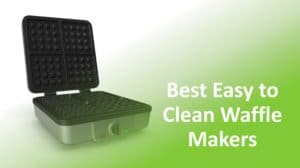

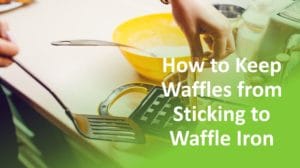


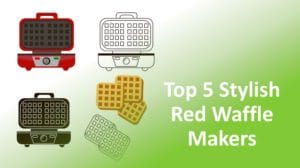
I am Belgian and we do not use syrup on our waffles. This is simply not done. If made properly the only additions are fresh fruit and a dollop of whip cream.
Thanks for feedback, Shirley. Yes, “Belgian” waffles in the United States are dressed up very differently 😉
Yummy, I will put fresh fruit and a dollop of whip cream on my Belgian Waffle. It is a bit more healthier and taster!!